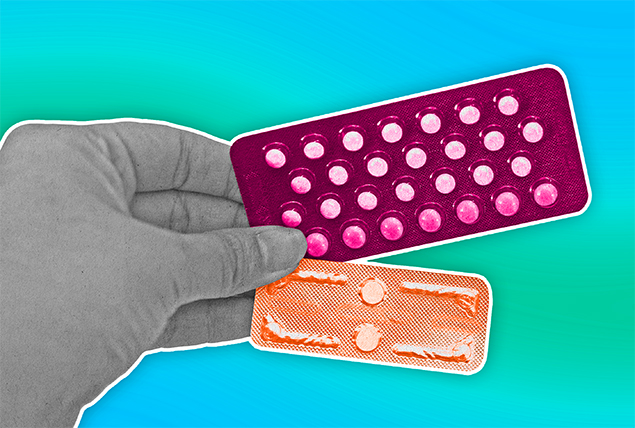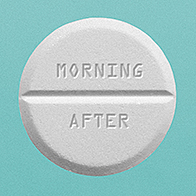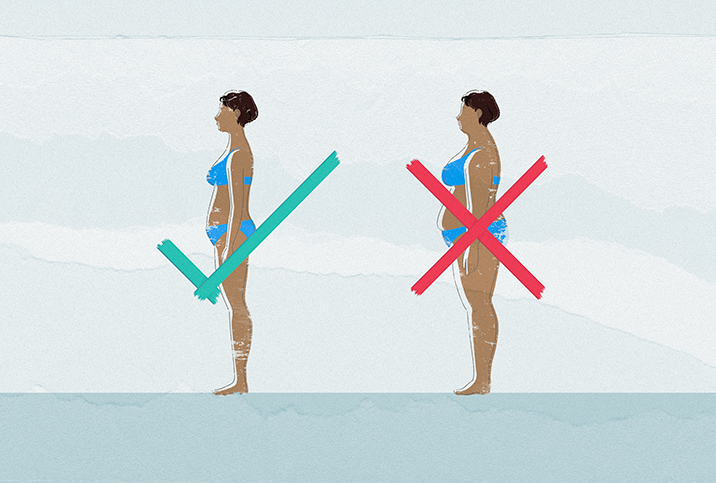Are There Risks to Taking Emergency Contraception on Birth Control?

People have access to a plethora of safe and effective hormonal and nonhormonal birth control choices. Some circumstances, however, may warrant the use of emergency contraception in addition to someone's regular birth control.
Instances such as forgetting to take oral birth control pills or experiencing a slip-up where a usual method malfunctioned might prompt the use of emergency contraception. It can be used to help prevent pregnancy after unprotected sex.
What is emergency contraception?
Emergency contraception—it is known colloquially as the morning-after pill or by one of its brand names, Plan B—can be used in conjunction with several birth control methods.
There are three kinds of emergency contraception pills:
- Ulipristal
- Progestin-only
- Combined emergency contraception pills
Insertion of an intrauterine device (IUD) within five days of unprotected sex is another potential option for emergency contraception. Getting an IUD is more effective than the morning-after pill, according to Planned Parenthood. Speak with your doctor to learn more.
When should you take emergency contraception with birth control?
Someone could take emergency contraception while using birth control if they unsuccessfully ingest their birth control, according to Himali Maniar, M.B.B.S., an OB-GYN at Nisha Women's Hospital & IVF Centre in Mumbai, India.
"This can include missing two or more hormonal contraceptive doses in the same cycle, taking them late [or] more than 12 to 24 hours after the intended dosage time, vomiting within two to three hours of taking the pill, or having diarrhea for more than 24 hours," Maniar said.
"Taking the pill at the same time each day, or even remembering to take it at all, can be tricky, especially when we live super busy lives," said Rhiannon John, a sexologist at Bedbible, based in New York, explained. "[If you] haven't taken the progestogen-only pill at the correct time, you may need to take emergency contraception if you believe you're at risk of becoming pregnant."
Someone might consider using an emergency contraceptive if they suspect a birth control method has failed. This could include a condom tearing or slipping or a diaphragm moving out of place during intercourse.
The criteria for using an IUD as emergency contraception is the same as using one as a birth control method: It's not a recommended option for people with an infection, an abnormally shaped uterus, pelvic inflammatory disease (PID) or fibroids.
The main difference between using an IUD as emergency contraception versus birth control is the need for prompt insertion.
Certain medications, including those used to treat HIV, fungus infections and seizures, can decrease the efficacy of hormonal birth control methods, according to John.
What about antibiotics?
"It is worth noting that while many believe antibiotics interfere with oral contraceptives, only a specific type of antibiotic called rifampin, primarily used for tuberculosis treatment, has been found to affect the pill's effectiveness," John said.
What kind of emergency birth control should you take?
"Emergency contraception is safe to take when a person is on any of the following forms of birth control: oral contraceptive pills, patches, vaginal rings, hormonal injections and progestin-only implants," Maniar said.
If you opt for emergency contraception after a birth control method error, how do you know which option to take? You can get some types of emergency contraception without a prescription at pharmacies, health clinics or online.
You won't have to show your ID or present a prescription for levonorgestrel morning-after pills (unless you opt for the brand Ella). You don't need to be a certain gender or age, either. But you may need to ask for it because it could be kept behind the counter or in a locked case.
You need to take Plan B within 72 hours of unprotected sex. But if you choose to use an IUD, you need to make an appointment for IUD insertion within five days of unprotected sex. Someone may choose an IUD if they want a method they don't have to think about every day.
It is important to note that condoms are the only form of emergency contraception that helps prevent pregnancy and sexually transmitted infections (STIs).
To select emergency contraception while you're on a form of birth control, the best option depends on a few factors, Maniar said:
- If you are already taking an oral contraceptive pill and need emergency contraception, then taking another form of a hormonal pill, such as Plan B or Ella, is the most effective option.
- For people using transdermal patches and vaginal rings, progestin-only pills, such as Plan B One-Step, are generally recommended.
- For injections or implants, progestin-only pills, such as levonorgestrel, are also recommended.
Are there any side effects involved in taking an emergency contraceptive?
Side effects are mild, uncommon and typically resolve on their own. Side effects from taking emergency contraception are similar to oral contraceptive pill side effects.
These could include the following, according to the World Health Organization (WHO):
- Nausea
- Vomiting
- Slight irregular vaginal bleeding
- Fatigue
Other reported side effects may include breast soreness or breast tenderness.
While emergency contraception can be taken up to five days after unprotected sex, John noted you should take emergency contraception as soon as possible because it's more effective when used sooner than later.
"If you experience vomiting within two hours of taking a dose, you should repeat the dose to ensure its effectiveness," John said.
The bottom line
Ensuring you're back on your usual method promptly is important.
"If you have taken the emergency contraception pill, you should commence taking your regular form of contraception immediately. Your next period may be a little later, heavier or lighter in flow. Take a pregnancy test if your period is over a week late," John said.
Don't take an emergency contraception pill, John added, if any of the following apply:
- You are already pregnant.
- You are allergic to it.
- You have male reproductive organs.
And don't use it as a regular form of birth control.
Emergency contraceptive use does not harm fertility in the future. Call your doctor if you have questions or concerns about taking birth control and emergency contraception together.




















